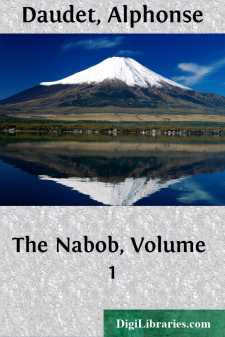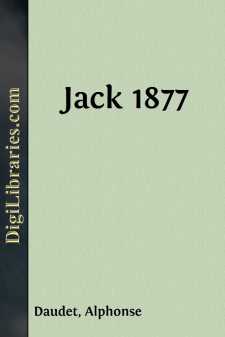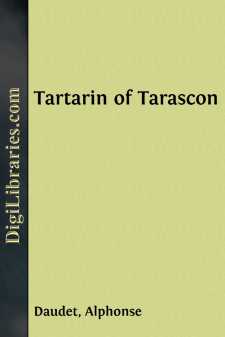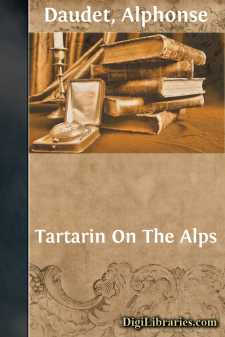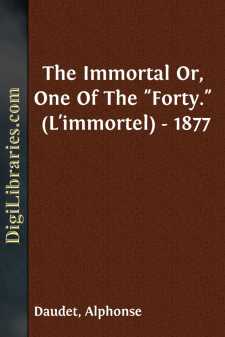Categories
- Antiques & Collectibles 13
- Architecture 36
- Art 48
- Bibles 22
- Biography & Autobiography 813
- Body, Mind & Spirit 142
- Business & Economics 28
- Children's Books 17
- Children's Fiction 14
- Computers 4
- Cooking 94
- Crafts & Hobbies 4
- Drama 346
- Education 46
- Family & Relationships 57
- Fiction 11829
- Games 19
- Gardening 17
- Health & Fitness 34
- History 1377
- House & Home 1
- Humor 147
- Juvenile Fiction 1873
- Juvenile Nonfiction 202
- Language Arts & Disciplines 88
- Law 16
- Literary Collections 686
- Literary Criticism 179
- Mathematics 13
- Medical 41
- Music 40
- Nature 179
- Non-Classifiable 1768
- Performing Arts 7
- Periodicals 1453
- Philosophy 64
- Photography 2
- Poetry 896
- Political Science 203
- Psychology 42
- Reference 154
- Religion 513
- Science 126
- Self-Help 84
- Social Science 81
- Sports & Recreation 34
- Study Aids 3
- Technology & Engineering 59
- Transportation 23
- Travel 463
- True Crime 29
The Nabob, Volume 1
by: Alphonse Daudet
Categories:
Description:
Excerpt
ALPHONSE DAUDET.
Alphonse Daudet is one of the most richly gifted of modern French novelists and one of the most artistic; he is perhaps the most delightful; and he is certainly the most fortunate. In his own country earlier than any of his contemporaries he saw his stories attain to the very wide circulation that brings both celebrity and wealth. Beyond the borders of his own language he swiftly won a popularity both with the broad public and with the professed critics of literature, second only to that of Victor Hugo and still surpassing that of Balzac, who is only of late beginning to receive from us the attention he has so long deserved.
Daudet has had the rare luck of pleasing partisans of almost every school; the realists have joyed in his work and so have the romanticists; his writings have found favor in the eyes of the frank impressionists and also at the hands of the severer custodians of academic standards. Mr. Henry James has declared that Daudet is "at the head of his profession" and has called him "an admirable genius." Mr. Robert Louis Stevenson thought Daudet "incomparably" the best of the present French novelists and asserted that "Kings in Exile" comes "very near to being a masterpiece." M. Jules Lemaitre tells us that Daudet "trails all hearts after him,—because he has charm, as indefinable in a work of art as in a woman's face." M. Ferdinand Brunetière, who has scant relish for latter-day methods in literature, admits ungrudgingly that "there are certain corners of the great city and certain aspects of Parisian manners, there are some physiognomies that perhaps no one has been able to render so well as Daudet, with that infinitely subtle and patient art which succeeds in giving even to inanimate things the appearance of life."
I.
The documents are abundant for an analysis of Daudet such as Sainte-Beuve would have undertaken with avidity; they are more abundant indeed than for any other contemporary French man of letters even in these days of unhesitating self-revelation; and they are also of an absolutely impregnable authenticity. M. Ernest Daudet has written a whole volume to tell us all about his brother's boyhood and youth and early manhood and first steps in literature. M. Léon Daudet has written another solid tome to tell us all about his father's literary principles and family life and later years and death. Daudet himself put forth a pair of pleasant books of personal gossip about himself, narrating his relations with his fellow authors and recording the circumstances under which he came to compose each of his earlier stories. Montaigne—whose "Essays" was Daudet's bedside book and who may be accepted not unfairly as an authority upon egotism—assures us that "there is no description so difficult, nor doubtless of so great utility, as that of one's self." And Daudet's own interest in himself is not unlike Montaigne's,—it is open, innocent and illuminating.
Cuvier may have been able to reconstruct an extinct monster from the inspection of a single bone; but it is a harder task to revive the figure of a man, even by the aid of these family testimonies, this self-analysis, the diligence of countless interviewers of all nationalities, and indiscretion of a friend like Edmond de Goncourt (who seems to have acted on the theory that it is the whole duty of man to take notes of the talk of his fellows for prompt publication)....


